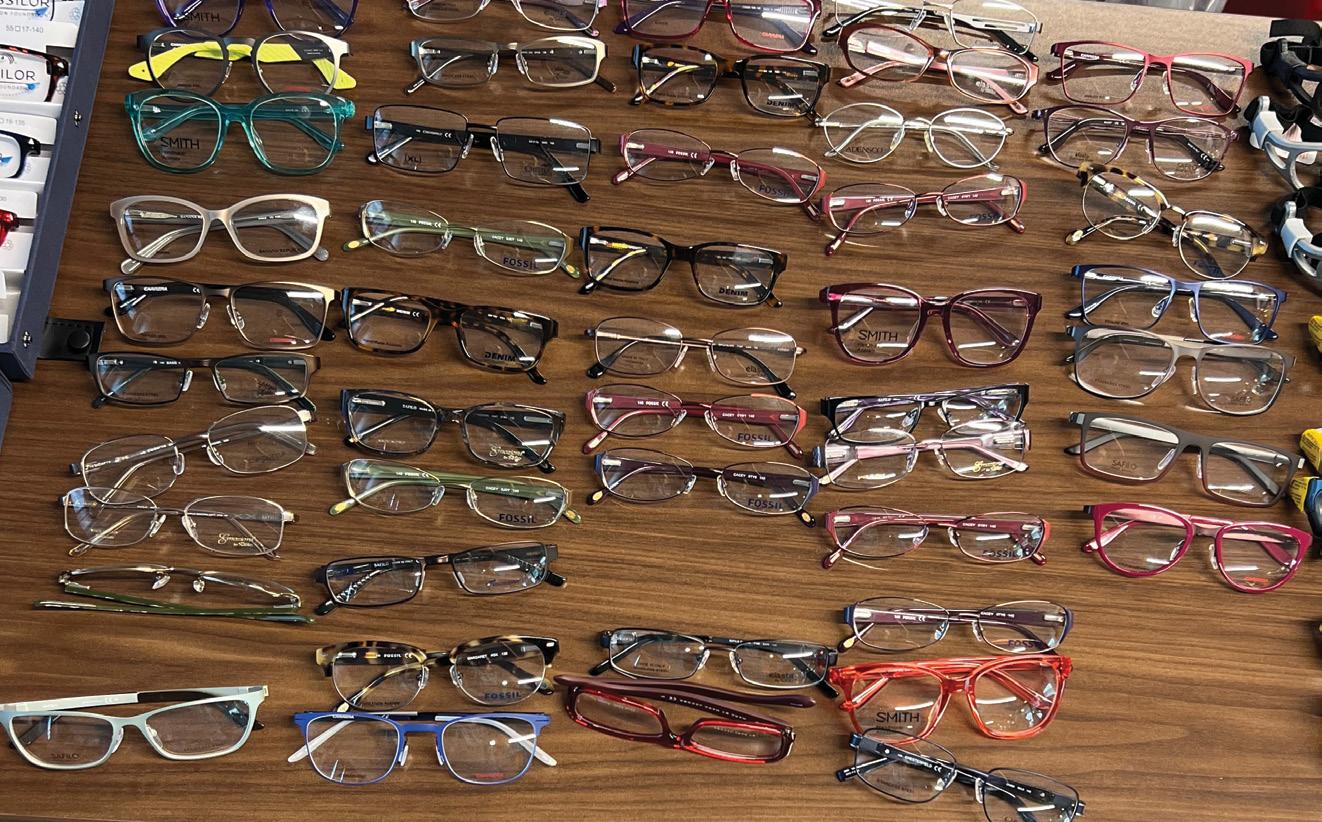
4 minute read
A Life of Service for People with Disabilities
When Melissa Daluvoy, MD, was a high school track and field athlete in a small town in Pennsylvania, a friend’s father asked her to help out with a Special Olympics event he was organizing. She said yes, little knowing it was the first step of a lifelong journey.
Daluvoy never stopped volunteering with the Special Olympics. “It’s really rewarding,” she says. “The athletes are truly appreciative of any help you give. It’s always a great day and when you leave, you feel happy.”
Today, as an associate professor of ophthalmology at Duke Eye Center, Daluvoy’s volunteer role has changed. She now provides eye care to the athletes as part of a program called Opening Eyes, which is a partnership between the Special Olympics and the Lions Club International Foundation. During Special Olympics events, athletes are invited to stop by the vision area for a variety of vision tests and, if needed, are given a free pair of prescription glasses, which can often be made on the spot.
A Circuitous Route to Ophthalmology
Back in high school, Daluvoy planned to become a physical therapist—she pictured herself working on the sidelines during Philadelphia Eagles games—and she did in fact earn a MPT degree after college. However, during PT school, she realized she wanted to delve deeper and learn more about the biological processes behind her patients’ injuries and ailments. So she took a few extra prerequisites and applied to medical school.
At first, she didn’t have a particular subspeciality in mind, but after her ophthalmology rotation, she was hooked. “I really liked the intricacy and fine detail that came with eye surgery,” she says. She also appreciated the opportunity to work with both adults and children.
Throughout all of it—college, PT school, medical school, and ophthalmology residency and cornea fellowship—she stayed involved with the
BY MARY-RUSSELL ROBERSON
Special Olympics. “Every city and lots of little towns host their own version,” Daluvoy says, “so every time I moved, I would seek it out.” She began working with Opening Eyes when she was an ophthalmology resident at George Washington University.
Reviving Opening Eyes NC
When she joined the Duke Eye Center faculty in 2013, the North Carolina chapter of Opening Eyes was dormant. She and an optometrist in private practice, restarted the program and codirected it for several years. Now, she is the sole official director of Opening Eyes NC.
Duke Eye Center supports Daluvoy’s efforts with donated supplies and lots of volunteers to help staff the two main events—in Raleigh every June and in Blowing Rock every January—and smaller regional and local tournaments.
Caring for Patients with Disabilities
Daluvoy has drawn on her years-long experience with athletes in the Special Olympics. “My work with the Special Olympics makes me comfortable working with families or patients with a disability,” she says.
As a cornea specialist, she often treats patients with Down syndrome who have keratoconus, in which the surface of the cornea bulges out. It is about 15 times more common in people with Down syndrome than the general population.
Daluvoy also seeks out opportunities to teach others the skills she’s learned while working with athletes at the Special Olympics and patients with disabilities. “Not all providers feel comfortable treating and examining patients with intellectual disabilities,” she says. For that reason, whenever she is giving a lecture to current or future ophthalmologists, she always takes the opportunity to offer tips on caring for people with disabilities.
“Barriers to care are a big deal for people with intellectual disabilities,” she says. “I’m just trying to break down as many barriers as I can.”

















